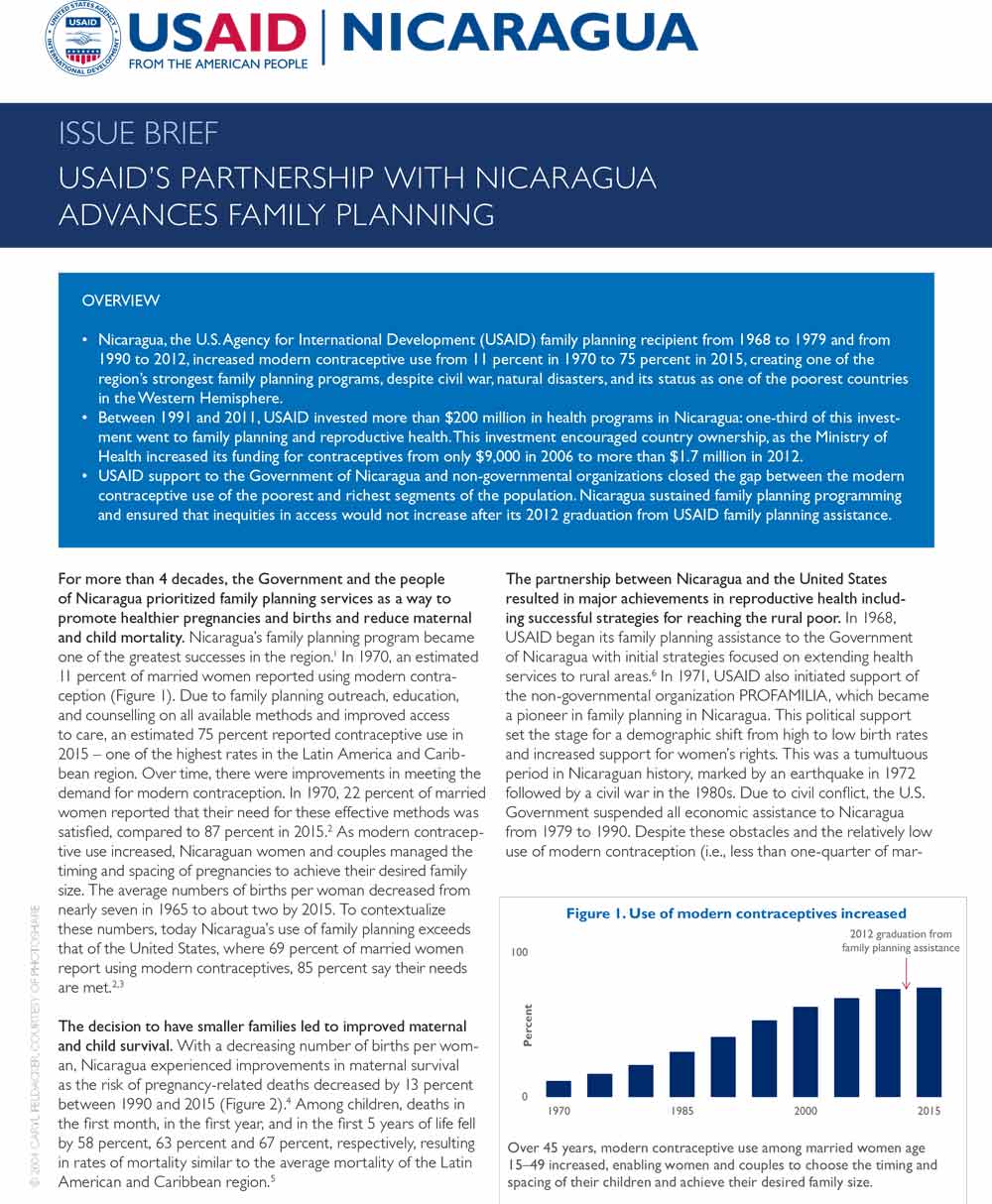Home » What We Do » Global Health » Family Planning » Resources » USAID's Partnership with Nicaragua Advances Family Planning
- What We Do
- Agriculture and Food Security
- Democracy, Human Rights and Governance
- Economic Growth and Trade
- Education
- Ending Extreme Poverty
- Environment and Global Climate Change
- Gender Equality and Women's Empowerment
- Global Health
- Water and Sanitation
- Working in Crises and Conflict
- U.S. Global Development Lab
For more than 4 decades, the Government and the people of Nicaragua prioritized family planning services as a way to promote healthier pregnancies and births and reduce maternal and child mortality.
Overview
- Nicaragua, the U.S. Agency for International Development (USAID) family planning recipient from 1968 to 1979 and from 1990 to 2012, increased modern contraceptive use from 11 percent in 1970 to 75 percent in 2015, creating one of the region’s strongest family planning programs, despite civil war, natural disasters, and its status as one of the poorest countries in the Western Hemisphere.
- Between 1991 and 2011, USAID invested more than $200 million in health programs in Nicaragua: one-third of this investment went to family planning and reproductive health. This investment encouraged country ownership, as the Ministry of Health increased its funding for contraceptives from only $9,000 in 2006 to more than $1.7 million in 2012.
- USAID support to the Government of Nicaragua and non-governmental organizations closed the gap between the modern contraceptive use of the poorest and richest segments of the population. Nicaragua sustained family planning programming and ensured that inequities in access would not increase after its 2012 graduation from USAID family planning assistance.








Comment
Make a general inquiry or suggest an improvement.